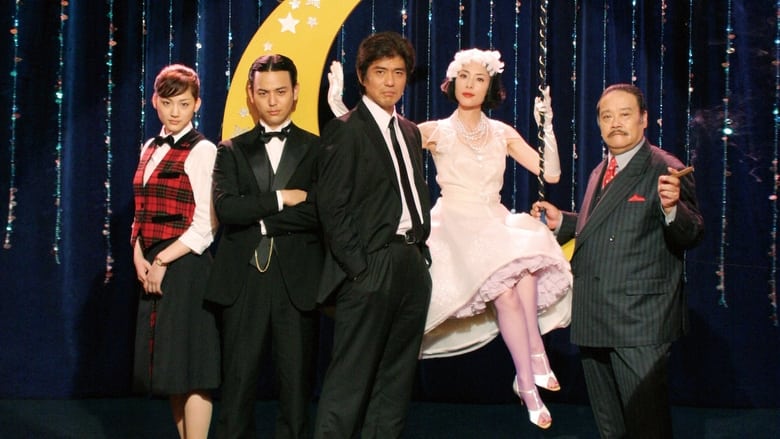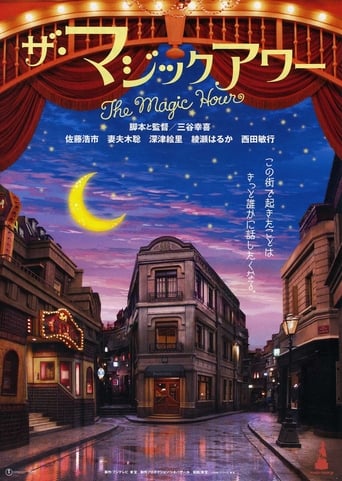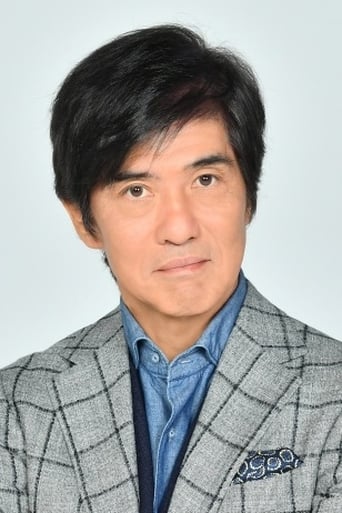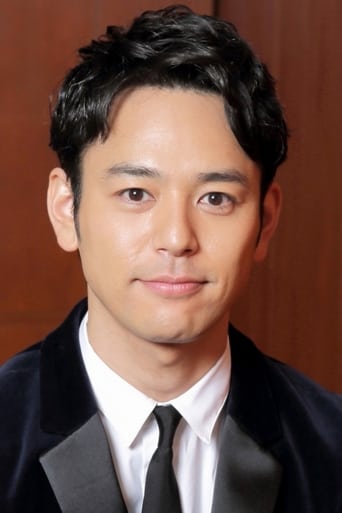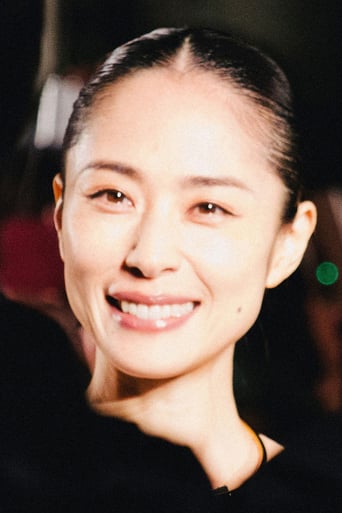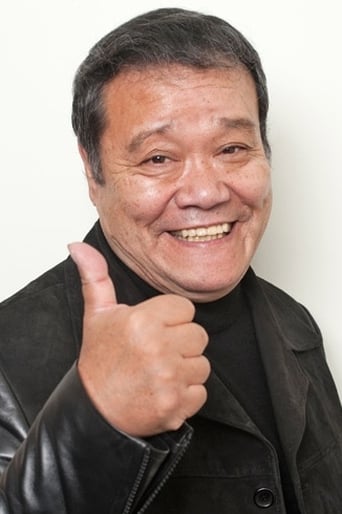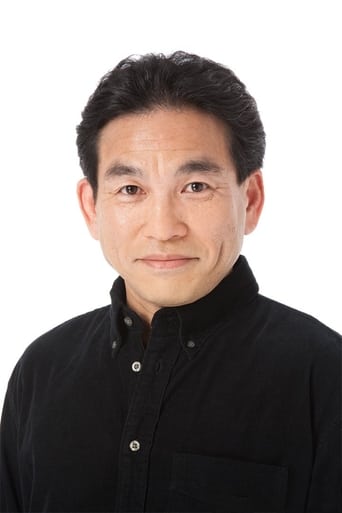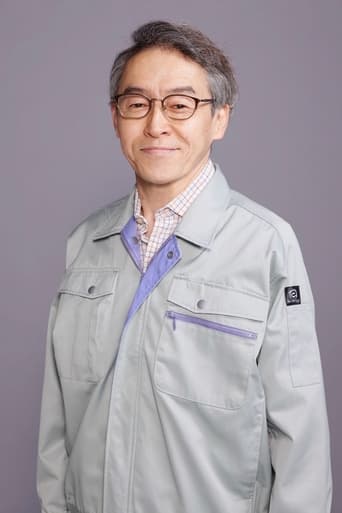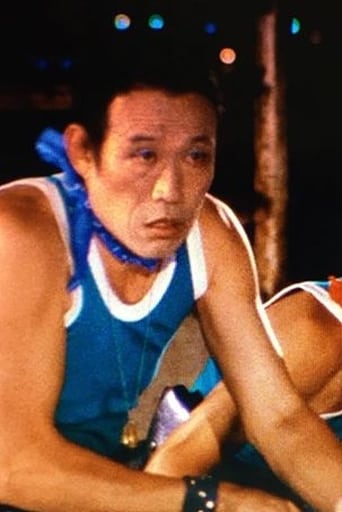A hustler who gets in trouble with a gang boss in the port town of Sukago agrees to make good with the don by putting him in contact with a mysterious hitman — an assassin the hustler has no idea how to contact. Instead, he hires an actor to play the role, though the thespian has no idea what he's getting into.
Similar titles
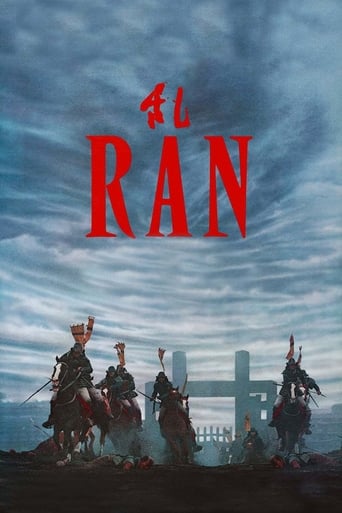
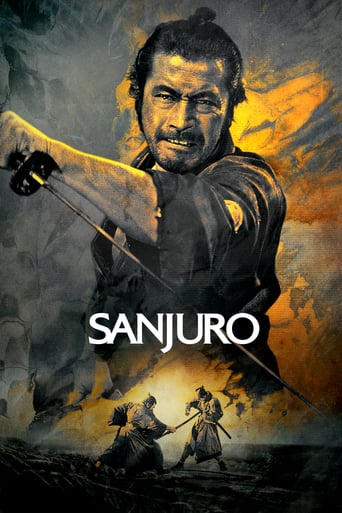
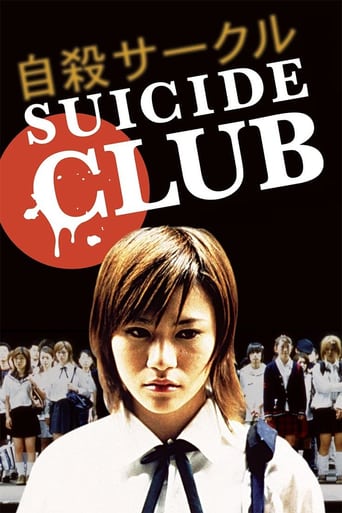
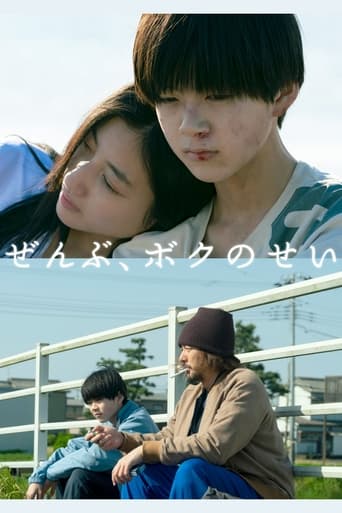
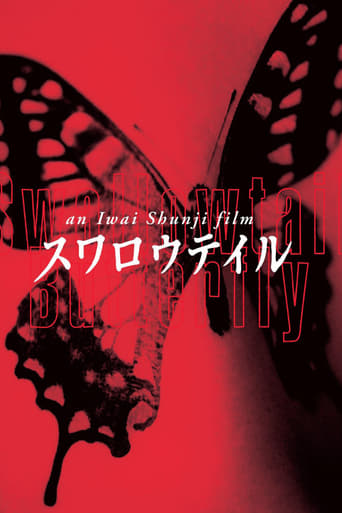
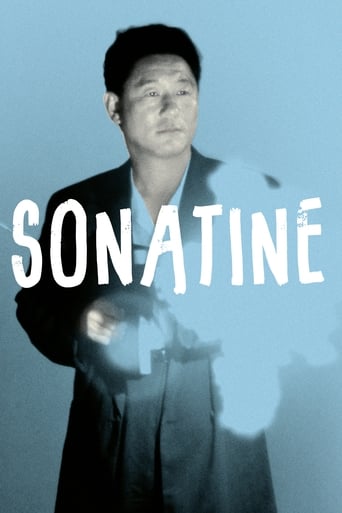
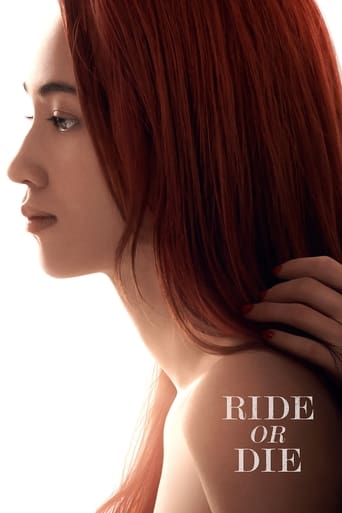
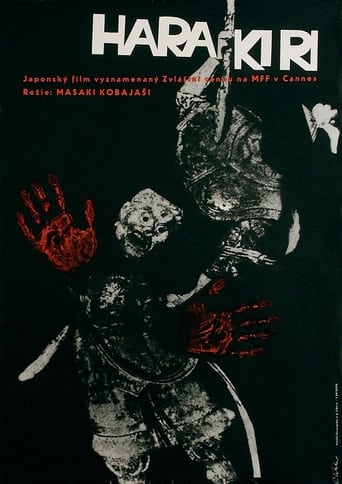
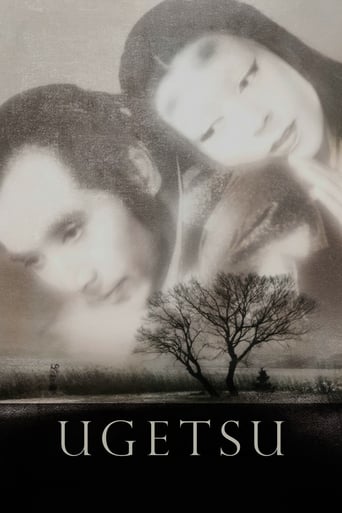
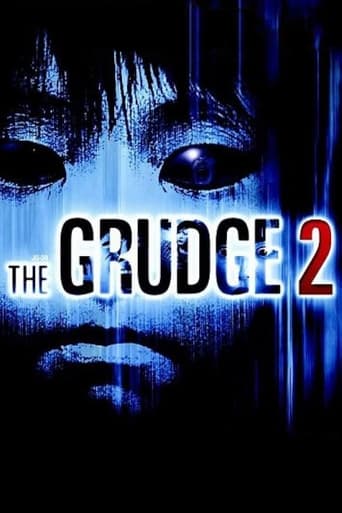
Reviews
Redundant and unnecessary.
It's no definitive masterpiece but it's damn close.
Good movie but grossly overrated
Excellent, Without a doubt!!
"The Magic Hour" knows very well how to pull off the classic comedic misunderstanding. Its plot is the kind of thing where the audience knows full well what's going on, but when the characters interact they each interpret conversations and events wrongly. The situation escalates, with one character always thinking they're talking about A and the other always thinking they're talking about B, and the longer it goes on the more ridiculous and the more hilarious it gets. Ridiculous, of course, because if either character would at any time just spell out what they're talking about, it would all be cleared up and the movie would be over. That can't happen until the end, when things have gotten as crazy as the screenwriter can make them. It's a formula that's been used in sitcom episodes and movies for a long time, and writer/director Koki Mitani is someone who knows and respects entertainment history. His script is funny and emotional in all the right places. If it is predictable, the advantage of that is that audiences know what to do with it.Surely one of the first things you have to do to enjoy a movie like this is to toss any expectations of realism out the window. The best scene in "The Magic Hour" involves an elaborate showdown with a Thai street gang featuring an arms sale, a hidden assassin, and a suitcase full of fake money. It all goes wrong in a way that would surely lead to the characters figuring out that nothing is what they think it is, but of course we cut to the next scene without anyone having faced the seemingly inevitable moment of realization. That's fine, the rules are different in a comedy like this.That's why it's a bit of a problem that "The Magic Hour" seems to compulsively poke at its own plot holes. When the movie starts, it initially appears to be set during the 1920s, to judge from the cars, clothes, hairstyles, buildings, and general atmosphere. But this is misdirection, and within minutes the movie seems to have decided that is set more or less in the present. The town just so happens to look like an old movie set, and its residents just happen to dress the part—an odd quirk, but it helps set a certain tone. The problem is, the movie doesn't leave it at that. Chronology keeps playing a niggling role. The movie borrows the styles and tropes of noir to characterize its heavy and its femme fatale, but it repeatedly steps back to examine that era of entertainment as a thing of the past. One of the characters is obsessed with a "Casablanca"-like film whose Bogart figure is seen years later as a very old man. At the same time, a struggling actor seems to act in nothing but black and white gangster movies. It's not confusing, but it's hard not to be distracted by the fact that half of the characters seem to be living in a different time period than the other half.There are some additional logical inconsistencies, most of which revolve around the out-of-time, out-of-place femme fatale (Eri Fukatsu), that I felt I was expected to ignore and was happily doing so until the movie itself to bring them up without providing any real explanations. Why doesn't she just skip town? I wondered at the beginning. Why don't we just skip town? she asks much, much later. The run-time is so long that I'd forgotten my quibble until it was brought to the fore in a late attempt to manufacture an arc for the underdeveloped female lead.The actors, especially Toshiyuki Nishida as a mob boss and Koichi Sato as the struggling actor, manage to pull off the film's various conceits better than the script does, and are often hilarious in their exaggerated roles. The object of a comedy of misunderstandings, after all, is to enjoy a series of funny misunderstandings, and "The Magic Hour" provides plenty of them.
THE MAGIC HOUR is a valentine to Japanese film fans who love soft-hearted, traditional fare steeped in cinema lore and history. It's set in the present day, though most of it could easily have been set in the past.To slip away from the talons of a tough, businesslike gangster (Toshiyuki Nishida), a handsome but desperate underling (Kôichi Satô) vouches to find a shadowy assassin - and has to find the man in five days. Sato kidnaps a film camera, poses as a new director, and creates a drama within a movie to try to fool his gangster senior. As often happens with this kind of deception, things get out of hand very quickly - and it's to the film's credit that it keeps your attention and interest. The director's warm feeling for the mythology of film - and crime pot-boilers - makes for an agreeable entertainment.Of course, the more you examine the plot, the more THE MAGIC HOUR loses credibility - and a lot of it. If you look it from the standpoint of dramatic logic, it works for the most part; but if you're willing to view the drama uncritically, you may begin to like its appealing performances and old-style approach to gangsterism. (Instead of killing off its cast with bullets, they get cement shoes - the kind of low-tech punishment you'd expect from '30s and '40s crime dramas.)A cute supporting role for Haruka Ayase, though it would have been nice to see more of her.
It's pretty easy to see why The Magic Hour went down so well with audiences in its native Japan. Ridiculously light-hearted, enough to put even Jeunet's Amelie to shame, with a sort-of all star cast that includes Haru no Yuki/Dororo star Satoshi Tsumabuki, delightful young up-and-comer Haruka Ayase (sadly given little to do here) former Monkey star Toshiyuki Nishida and perennial Kitano stooge Susumu Terajima amidst a host of other recognisable faces. It even has a cameo from Kon Ichikawa, sadly shortly before his death. The show really belongs, though, to Koichi Sato, verily hamming it up as, well, a very hammy actor...This kind of self-reference permeates the film, occasionally to its detriment. Ayase's short monologue early on, for example, enouncing her feelings of being in a movie, is particularly grating. It's not the film's only problem; it suffers from a particularly weak female lead (in fact, all of the female roles are criminally underwritten), a total lack of logic or flow and a fairly bloated running time that the material doesn't really justify. Luckily, these concerns matter little in a film clearly intended solely to entertain - a feat which it accomplishes in abundance. Particular highlights include Sato's bizarre knife-licking antics during the first meeting between Murata/Togashi and Boss Teshio, the dialogue between Sato and Terajima about "where you're shooting from" and the sight gag early on involving cement shoes and painted toenails. As with any out-and-out comedy, the jokes are hit-and-miss, but it easily scores enough hits to warrant a viewing. As throwaway as they come and not without its flaws, but ultimately satisfying nonetheless.
Koki Mitani is a director that film critics tend to treasure. Although he hardly deviates away from his warm-hearted and good natured settings, his style is often chaotic but can somehow make all the sense of the world.The Magic Hour keeps up with this tradition, bringing in many veterans of actors that he has used previously (even if small minor roles), and it really shows how talented Mitani can be not only as a director but as a writer. Blessed from being bred from theatre, his plots move sufficiently at an excellent pace to the point where sometimes you want to freeze time just to appreciate how well tied together a movie can become.Subtle humour that creates bellyaches from laughter is his greatest weapon and he uses it profoundly in this movie. I felt that all of the actors put their best performances into it, and it seemed like they genuinely had a lot of fun by "camping" it up at times.If anyone wants to watch a Japanese comedy that isn't over the top then look no further.
Top Streaming Movies











